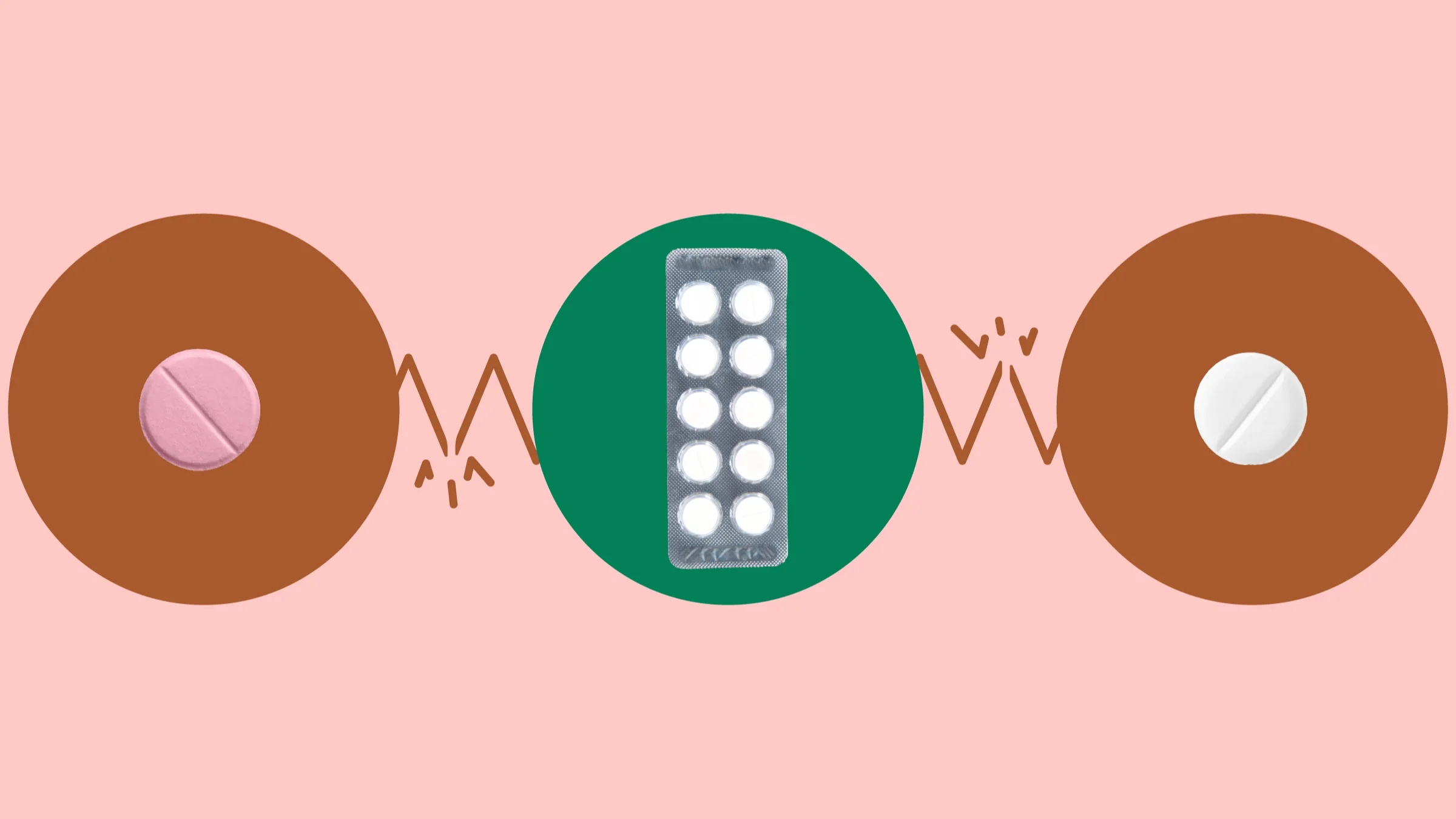Key takeaways:
Bactrim (sulfamethoxazole / trimethoprim) interacts with many medications and foods. Examples include warfarin (Coumadin, Jantoven), oral diabetes medications, and alcohol.
Bactrim can negatively affect other medications you may be taking, even if you’re only combining them for a short period of time. This can lead to unwanted side effects.
Keep your prescriber and pharmacist up to date on all of the medications and supplements you take. This will help them check for interactions and prevent them from happening.
Save on related medications
Bactrim (sulfamethoxazole / trimethoprim) is a common sulfa antibiotic. It treats several bacterial infections, including urinary tract infections (UTIs), bronchitis, ear infections, and more.
Bactrim is a helpful and affordable antibiotic for many people. It’s also widely available at pharmacies across the country. But many medications and foods can interact with it.
If you or a loved one were recently prescribed this antibiotic, it’s important to know how to take it safely. This includes knowing which Bactrim interactions to be on the lookout for and how to manage them.
Why Bactrim (sulfamethoxazole / trimethoprim) interactions happen
Bactrim can change how your liver breaks down (metabolizes) medications. It can also affect how well your kidneys clear substances from your body. These interactions can lead to lower or higher medication levels in the body. This can affect how well your medications work, and it can also lead to unintended side effects.
Below are seven Bactrim interactions to be aware of. However, this list doesn’t cover all possible interactions. So be sure to give your pharmacist and prescriber an updated list of all medications and supplements you take.
1. Warfarin
Bactrim interacts with a blood thinner medication called warfarin (Coumadin, Jantoven). It’s used to prevent blood clots.
When combined, Bactrim can amplify the blood-thinning effects of warfarin. This means your blood may become too thin, which puts you at a higher risk of bleeding or bruising.
You may need more frequent blood work if you take the two together. It's also a good idea to consider an alternative antibiotic that doesn’t interact with warfarin. But if Bactrim is the necessary antibiotic for your situation, your prescriber may want to temporarily lower your warfarin dose.
2. Certain diabetes medications
Some oral Type 2 diabetes medications can also interact with Bactrim. These medications work by lowering blood glucose (sugar) levels, and include:
Metformin
Glyburide (DiaBeta, Glynase)
Glipizide
Repaglinide
Pioglitazone (Actos)
If you have diabetes and take one or more of these medications, know that Bactrim can enhance their effects. This can prompt your blood glucose to drop too low. Symptoms of low blood glucose, such as shaking, dizziness, or confusion, are more likely to happen as a result. This can be dangerous if not promptly treated.
It’s a good idea to monitor your blood glucose more often if you’re taking any of these medications with Bactrim. If your blood glucose drops too low, you may need to take a fast-acting source of glucose. Glucagon may be necessary in emergency situations.
3. Certain autoimmune medications
Methotrexate and cyclosporine (Neoral, Gengraf) are medications that treat several autoimmune conditions, such as psoriasis and rheumatoid arthritis. Methotrexate is also prescribed for certain types of cancer, while cyclosporine can also help prevent organ transplant rejection.
Reconsider your morning orange juice: Learn about foods and drinks to avoid while taking Bactrim (sulfamethoxazole / trimethoprim).
Bactrim vs. Macrobid: Both antibiotics can treat UTIs, but is one more useful than the other?
Birth control interactions: Read on to learn about medications that make contraceptives less effective.
Bactrim makes it harder for your kidneys to get rid of methotrexate and cyclosporine. This causes the medications to linger in your body, which can lead to added side effects. Bactrim can also remove methotrexate from proteins that it normally attaches to. This can increase your blood levels of methotrexate.
Methotrexate toxicity can cause lower blood cell counts, such as lower red blood cells, white blood cells, and platelets. It can also cause liver damage, mouth swelling, and mouth sores. Too much cyclosporine may cause serious side effects, such as kidney failure and seizures.
To prevent any issues, it's recommended to avoid taking Bactrim with methotrexate or cyclosporine.
4. Blood pressure medications like lisinopril
Bactrim can increase potassium levels in the blood. This happens because of its effect on your kidneys.
The risk of this rise in potassium goes up when you take Bactrim at the same time as certain blood pressure medications. The combination can make your potassium levels rise too high. High potassium levels in the blood can affect the way your heart beats. In rare cases, this can be life-threatening.
The main offenders for this interaction are angiotensin-converting enzyme (ACE) inhibitors and angiotensin receptor blocking agents (ARBs).
Common ACE inhibitors include:
Lisinopril (Zestril)
Benazepril (Lotensin)
Enalapril (Vasotec)
Quinapril (Accupril)
Ramipril (Altace)
Common ARBs include:
Losartan (Cozaar)
Valsartan (Diovan)
Candesartan (Atacand)
Irbesartan (Avapro)
Olmesartan (Benicar)
Telmisartan (Micardis)
If you take any of these medications, your healthcare professional may want to check your blood work more often while you’re taking Bactrim.
5. Certain heart medications
Dofetilide (Tikosyn) and procainamide are two medications that treat irregular heart rhythms. Bactrim can increase the amount of these medications in the blood. This can increase the risk of life-threatening heart issues, including cardiac arrest. To avoid this, don’t take Bactrim with dofetilide or procainamide.
Digoxin (Lanoxin) is another medication used to treat irregular heart rhythms. Digoxin levels can go up when combined with Bactrim. If you can’t avoid taking these medications together, your healthcare professional will likely monitor your digoxin levels more often.
Certain diuretics (water pills) for heart failure and high blood pressure can also interact with Bactrim. Chlorthalidone (Thalitone), hydrochlorothiazide (Microzide), and spironolactone (Aldactone) are a few examples. When taken with Bactrim, there’s a possibility for lower platelets and increased bleeding.
6. Phenytoin
Phenytoin (Dilantin, Phenytek) is a medication for people living with epilepsy. It helps prevent seizures.
If you take phenytoin and Bactrim together, you run the risk of having higher phenytoin levels. If phenytoin levels become too high, you may develop side effects such as rapid eye movements, confusion, and slurred speech.
When possible, try to avoid taking these two medications together. If you can't avoid the combination, watch out for signs and symptoms of phenytoin toxicity. Your healthcare professional will likely want to watch your phenytoin blood levels more closely, too.
7. Alcohol
It’s possible for Bactrim to block the liver’s breakdown of alcohol. This can cause symptoms such as:
Severe nausea and vomiting
Facial flushing
Shortness of breath
Headache
Irregular heart beat
As a general rule, it’s best to avoid alcohol when taking antibiotics. Alcohol can make it harder to heal from an infection. This makes it harder for antibiotics to do their job. But since Bactrim can cause a disulfiram-like reaction, that’s another reason to avoid the combination.
Frequently asked questions
If you have kidney issues or are taking any medications that also increase potassium, you may want to limit large amounts of high-potassium foods. This is because it’s possible to have higher levels of potassium in your body while taking Bactrim. Foods that are high in potassium include avocados, beans and lentils, and potatoes.
You may also want to steer clear of acidic or spicy foods if you get an upset stomach with Bactrim. These foods don’t necessarily interact with Bactrim, but can upset your stomach more if taken at the same time.
No, Bactrim doesn’t interact with birth control. You can safely take Bactrim with the pill, patch, and vaginal ring birth control methods.
Caffeine doesn’t interact with Bactrim. But caffeine is a mild diuretic, which means it can cause you to produce more urine. So, if you ingest too much caffeine, it could lead to dehydration. Staying hydrated is one important part of recovering from an illness.
As long as you only have moderate amounts of caffeine and drink plenty of other fluids to stay hydrated, you can continue drinking your favorite caffeinated beverage during treatment with Bactrim.
If you have kidney issues or are taking any medications that also increase potassium, you may want to limit large amounts of high-potassium foods. This is because it’s possible to have higher levels of potassium in your body while taking Bactrim. Foods that are high in potassium include avocados, beans and lentils, and potatoes.
You may also want to steer clear of acidic or spicy foods if you get an upset stomach with Bactrim. These foods don’t necessarily interact with Bactrim, but can upset your stomach more if taken at the same time.
No, Bactrim doesn’t interact with birth control. You can safely take Bactrim with the pill, patch, and vaginal ring birth control methods.
Caffeine doesn’t interact with Bactrim. But caffeine is a mild diuretic, which means it can cause you to produce more urine. So, if you ingest too much caffeine, it could lead to dehydration. Staying hydrated is one important part of recovering from an illness.
As long as you only have moderate amounts of caffeine and drink plenty of other fluids to stay hydrated, you can continue drinking your favorite caffeinated beverage during treatment with Bactrim.
The bottom line
Bactrim (sulfamethoxazole / trimethoprim) can interact with many medications and substances. Common examples include warfarin (Coumadin, Jantoven), oral diabetes medications, and alcohol. But this isn’t an exhaustive list of Bactrim interactions.
Before you start taking Bactrim, have your prescriber and pharmacist review your full medication list. They can help you avoid interactions before they happen.

Why trust our experts?



References
Ament, P. W., et al. (2000). Clinically significant drug interactions. American Family Physician.
Antoniou, T., et al. (2010). Trimethoprim-sulfamethoxazole–induced hyperkalemia in patients receiving inhibitors of the renin-angiotensin system: A population-based study. JAMA Internal Medicine.
Antoniou, T., et al. (2011). Trimethoprim/sulfamethoxazole-induced phenytoin toxicity in the elderly: A population-based study. British Journal of Clinical Pharmacology.
Ershad, A., et al. (2023). Acute cyclosporine overdose: A systematic review. Medicina Clinica Practica.
Hamed, K. M., et al. (2022). Overview of methotrexate toxicity: A comprehensive literature review. Cureus.
Iorga, A., et al. (2023). Phenytoin toxicity. StatPearls.
Maideen, N. M. P., et al. (2019). Clinically important and pharmacologically relevant drug interactions with alcohol. American Journal of Research in Medical Sciences.
Mergenhagen, K. A., et al. (2020). Fact versus fiction: A review of the evidence behind alcohol and antibiotic interactions. Antimicrobial Agents and Chemotherapy.
National Heart, Lung, and Blood Institute. (2022). What is an arrhythmia?
Pritchard, B., et al. (2023). Procainamide. StatPearls.
Simmons, K. B., et al. (2018). Drug interactions between non-rifamycin antibiotics and hormonal contraception: Asystematicreview. American Journal of Obstetrics and Gynecology.
Sun Pharmaceuticals Industries, Inc. (2024). Bactrim sulfamethoxazole and trimethoprim DS (double strength) tablets and tablets USP [package insert].
Wang, C., et al. (2023). Clinical features, risk factors, diagnosis, and treatment of trimethoprim-sulfamethoxazole-induced hypoglycemia. Frontiers in Endocrinology.

















